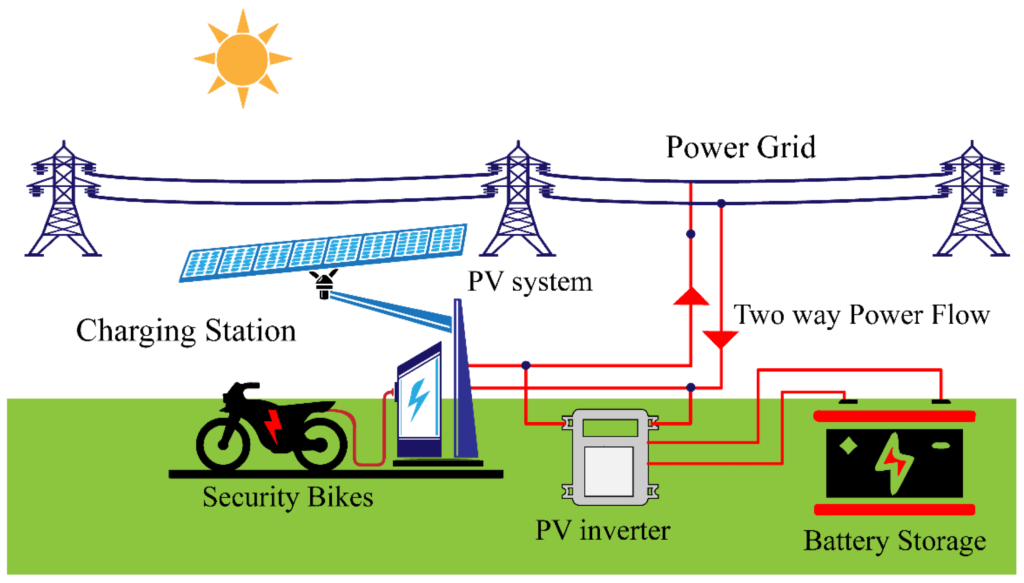For economic development it is inevitable and crucial to develop technologies those Eliminate adverse effect of conventional automotive technology in India. As the environment concern is raising globally, pollution is major concern in India too. India is fourth largest consumer of energy in world. Much of energy requirements are met by crude oil and coal. However, these traditional sources of energy contribute to alarming level of pollution in most Indian cities. The transport sector accounts for nearly 18% of the total energy consumed in India, second only to the industrial sector. In India almost half of the consumption of petroleum products is due to transport activities. This demand and dependency will grow if proper action is not taken. Out of the 142 MT CO2 emissions released by the transport sector in 2007, 87 percent were on account of road-based vehicular activities. If no action is taken, overall transport CO2 emissions can come close to 1000 MT by 2030, a fourfold increase from 260 MT in 2010, it’s a reason why state and central government both are working on finding ways to boost alternative energy sources. The electrical vehicle segment happens to be one of the thrust areas for growth as a result the government of India is planning to make India 100% electrical vehicle by 2030.
According to NITI Aayog’s energy policy report, India’s demand for energy is expected to double by 2040, and that for electricity to potentially triple as a result of increased ownership of electric vehicles. As electric vehicles are going to increase in future, this will create heavy load on electricity demand in future. There should be development of charging infrastructure for electric vehicles, which should be operated with the help of renewable energy.
The main objective of the project is to design the EV charging station for actual available car model in Indian market considering all the parameter like sun light availability, charging area required for solar panel, battery and power calculation and considering each and every parameter about charging and equipment. The design should be such that after referring the document user should be able to install the solar EV station very easily. And also, to avoid local grid overload and guarantee a higher percentage of clean energy, EV charging stations can be supported by a combined system of grid-connected photovoltaic modules and battery storage.
There are ample of opportunities for start up in solar PV based EV charging. But the start up creator should have a team that has a potential to understand the policies, technical understanding with cost benefit analysis. A clear business plan with identifying the investors in initial stage as well as in growth stage. The land identification for setting up the solar PV based EV charging station is also crucial. The merger with existing petrol/diesel pumps, compact setup at commercial places for PV based EV charging will be of importance.
One of the more notable changes to the infrastructure we are seeing is the combination of EV charging equipment with battery energy storage systems.
The electrical network is far and wide. However, only some parts of the electrical grid are set up to support EV charging. With larger electric vehicle batteries and the growing demand for faster EV charging stations, access to more power is needed. Fortunately, there is a solution, and that solution is battery energy storage.
The battery energy storage system can support the electrical grid by discharging from the battery when the demand for EV charging exceeds the capacity of the electricity network. It can then recharge during periods of low demand.
Battery energy storage can shift charging to times when electricity is cheaper or more abundant, which can help reduce the cost of the energy used for charging EVs. The battery is charged when electricity is most affordable and discharged at peak times when the price is usually higher. Meaning you can either be more competitive on pricing to attract more EV drivers or maximize profitability per charge
Battery energy storage can provide backup power to charging stations during power outages or other disruptions, ensuring that EVs can be charged even when the grid is unavailable.
This improves Reliability as well as Resilience of grid supply and EV charging station.

